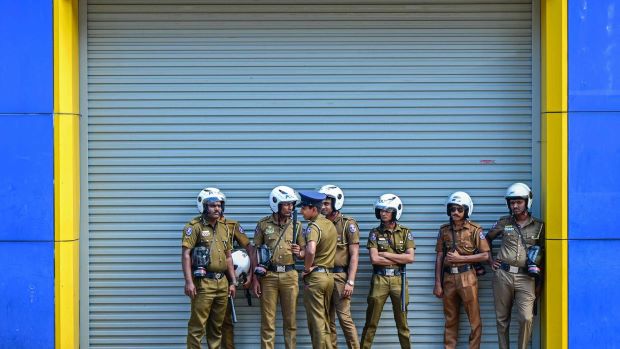Sri Lanka to continue drug crackdown despite rights group concerns
By Uditha Jayasinghe
COLOMBO – Sri Lanka vowed to continue an anti-narcotics campaign that has seen more than 35,000 people detained over the last few weeks despite concerns raised by multiple rights groups, top officials said on Thursday (18).
Sri Lankan police have detained 38,525 people since the operation – code-named ‘Yuktiya’ or ‘Justice’ – began in December.
“They (rights groups) can issue statements, I will not stop this operation,” said Public Security Minister Tiran Alles.
“If we are doing anything wrong on ground, people are not going to support us like this,” he said.
Thirty-three rights organizations including Amnesty International, Human Rights Watch, and International Commission of Jurists, this week expressed concerns over what they call “drastic intensification” of anti-narcotics operations in Sri Lanka leading to significant human rights violations.
“These arrests are been made very arbitrarily. There is no reasonable suspicion, that the kind of people arrested have a lower marginalised economic status,” said Thiyagi Ruwanpathirana, a researcher for Amnesty International Sri Lanka.
“The way in which the operations are carried out – there is cavity searches, strip searches in public, some of which are televised – it is really giving a lot of concern for human rights organisations,” Ruwanpathirana said.
Deshabandu Tennekoon, acting chief of Sri Lanka’s police, dismissed concerns of violations, saying police had followed due process in dealing with detained suspects resulting in only about 5,000 ultimately being jailed. The raids, which are carried out countrywide on a daily basis, have unearthed 4.7 billion rupees ($14.5m) worth of drugs, he added.
“We will identify new suspects and continue as this is an effort to dismantle the drug trafficking and distribution network within the country.”
Sri Lanka had over 97,000 drug-related arrests in 2020 with 53% of arrests for heroin and 42% for cannabis including possession offences, according to the latest data from the state-run National Dangerous Drugs Control Board.
-Reuters



Comments are closed, but trackbacks and pingbacks are open.